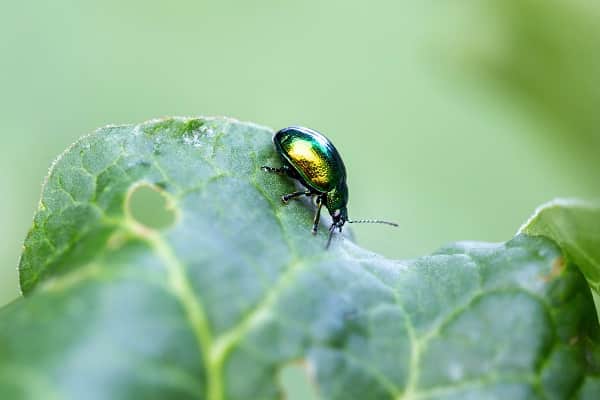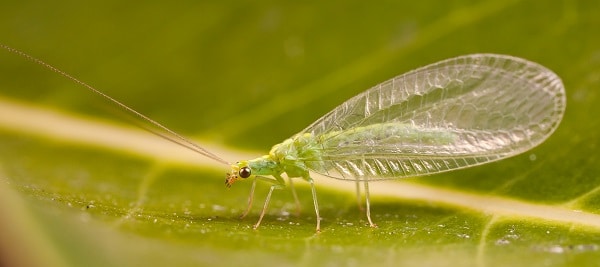The minute we hear “bugs,” our mind is automatically driven to all the icky and unpleasant stuff like bites, infections, irritation, and whatnot. However, you should know that bugs essentially play a major role in the ecological balance. In fact, they hold the primary responsibility of green growth in the world, as they not only transfer pollen and nectar but also contribute to making the soil healthy and fertile for growth. This is why there are certain good bugs that you must always welcome in your garden, if not inside your house.
However, there is a wide range of bugs, each carrying a different purpose. While some can actively contribute to the healthy growth of your garden, some may also cause damage and destroy the progress you have made so far. This is why being able to identify which bugs to welcome and which ones to shoo away is a must for any gardener. And to help you with the same, here’s a guide about everything you need to know about good bugs. Let’s get started!
Contents
What Can Bugs Do To Your Garden?
Before we start naming and discussing the bugs and their capabilities, let’s address this fundamental question. You may wonder how tiny bugs can contribute to your green stretch?
Here’s What Good Bugs Do

Well, to begin with, bugs carry and transfer essential nutrients from one place to another. So, every time you see one of the good bugs in your garden, there are high chances that your plants are actually being treated with nutrients that are essential for growth. Other than that, bugs also carry seeds, pollen, and nectar, which may give rise to new plants. This means that bugs not only nourish the previously existing plants but also produce new ones on their own. Additionally, they enhance the quality of your soil, which again leads to better growth of the plants.
Here’s What Bad Bugs Do

There are beneficial bugs, and then there are disastrous problematic bugs. These can damage your plants in multiple ways. The most common issue that bad bugs create is that they suck the sap out of the plants and trees. This, in turn, leads to several problems such as wilting of the leaves, development of holes or dark spots on the leaves, fungus on the steams, and so on. Sometimes, they can also cause major damage, which stunts the plant’s growth or destroys it completely. All in all, bag bugs can prove to crush the life out of the plant in one way or another.
With that being said, let’s have a look at the good bugs that you must allow in your garden, for a greener, healthier and generous growth in the long term.
Here Are The Beneficial Garden Insects:
Ladybugs

Ladybugs are probably one of the most beneficial bugs that you can introduce to your garden. In fact, if you have them in your garden, you can truly eliminate the need for artificial pest controllers. How is that? Allow us to elaborate. Ladybugs are majorly attracted to and feed on aphids, which we all know to cause damage to the plants by sucking the sap out of them. Ladybugs can practically finish off the majority of the aphids in your garden, as they can eat approximately 40 aphids in just an hour. In this way, they work as garden pest control.
Beetles

Beetles can also prove highly beneficial to your garden, as they have quite a gigantic and diverse appetite. Out of the wide range of beetles that normally exist in the surrounding area, botanical experts suggest that soldier beetles and ground beetles are the most useful. Soldier beetles can help you eliminate a variety of bad bugs, including caterpillars, which are otherwise quite challenging to get rid of. Ground beetles, on the other hand, can finish off the thrips, nematodes, and even the weevils in your garden.
Green Lacewing

These are green-colored insects, which look like they belong somewhere in the middle of a slug and an alligator, are quite powerful and can kill a significant amount of bad bugs in the garden. They majorly feed on pollen and nectar, which is why they also spread them in large proportions, helping you keep your garden green. Other than that, they attack caterpillars and aphids like no other, and they also eat many of the soft-bodied garden pests. In this way, attracting beneficial bugs like green lacewing can truly be a boon to your garden.
Parasite Wasps

Parasitic wasps do their magic in absolute silence and are probably among the most effective insects out there. They slowly and steadily finish off several bad bugs, so it is best to allow parasite wasps to wander around in your garden. The braconid wasp usually lays its eggs over the tomato hornworms and caterpillars, which are found in big gardens on a large scale. In this way, the number of wasps increases, and they finish off the bad guys. Besides, the Trichogramma wasps such as tachinid fly prey on bad insects like gypsy moth caterpillars, green stink bugs, etc.
Praying Mantis

Praying mantis completely live up to their name, as they have a very violent and stubborn attitude towards other insects. Now, remember that their predator-like personality can work in your favor, as they kill most of the bag bugs, but it can also backfire. While they can help you get rid of bad and unwanted moths, beetles, flies, and so on, they can also turn to the good bugs and kill them. Not just that, they can also kill each other, even after being one of the same kind. Their hunger is quite terrorizing, which is why it is quite questionable whether to have them over or not.
CONCLUSION
So, these were some of the best insects that you must welcome in your garden if you wish to get rid of the bad bugs and improve the overall quality of your plants. Attracting beneficial insects can practically help you achieve a healthy environment for your plants to thrive and can also keep them safe from the damage caused by the bad bugs.